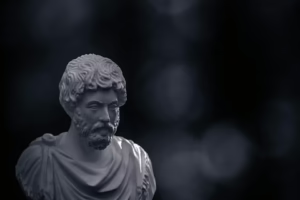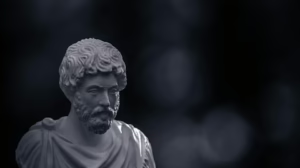Philosophy as a Mirror: Reflecting on the Meaning of Existence
Introduction
Philosophy has long served as a mirror through which we examine our existence and the world around us. From the ancient Greeks to contemporary thinkers, the discipline invites us to question our lives, our beliefs, and our place in the cosmos. This article will explore the enduring questions of existence, the frameworks philosophers have provided, and how these reflections impact our understanding of the self, society, and the universe.
The Nature of Existence
What Does it Mean to Exist?
At its core, the question of existence is multifaceted. The classic philosophical inquiries often begin with the question, “What does it mean to exist?” At the most basic level, existence pertains to the state of being: to have presence in some form, whether physical or abstract. However, the implications of existence are far richer, as philosophers probe into the nuances of being, consciousness, and reality itself.
Ancient Philosophies
Historically, early philosophers like Aristotle sought to understand existence through the concept of ousia, or essence. For Aristotle, existence was tied closely to substance, which gave rise to particular characteristics and purposes (Aristotle, Metaphysics). This ontological inquiry paved the way for later discussions about existence, particularly in relation to essence and identity.
Existentialism and the Question of Meaning
By the 20th century, existentialism emerged as a transformative philosophical movement, most notably championed by figures like Jean-Paul Sartre and Simone de Beauvoir. Existentialists emphasize the individual’s experience and the inherent absurdity of life. Sartre famously declared, “existence precedes essence,” suggesting that individuals are not born with predetermined purposes but instead must create their own meaning through actions and choices (Sartre, Existentialism is a Humanism).
This stark approach to existence reverberates in contemporary thought, inviting us to confront the void and forge identities amid uncertainty. The existential crisis has become a common theme, reflecting the struggle many face when pondering their purpose in an often chaotic world.
The Philosophical Lens
Dualism vs. Materialism
Philosophy serves as a lens through which we can view existence from various angles. One major philosophical debate is that of dualism versus materialism. Dualists, like René Descartes, argue that mind and body are distinct entities, while materialists assert that only the physical world, which can be observed and measured, holds significance.
This dichotomy raises questions about consciousness and experience. Do we exist merely as physical beings or do our thoughts, emotions, and consciousness reflect a deeper aspect of reality? The implications of these views extend into fields such as cognitive science and psychology, influencing how we understand human nature.
The Social Contract and Existential Reflection
Philosophy also acts as a mirror for our social realities. Theories like the social contract, proposed by thinkers like Thomas Hobbes, John Locke, and Jean-Jacques Rousseau, reflect our understanding of existence as part of a social fabric. They posit that individuals consent, explicitly or implicitly, to form societies for mutual benefit, raising questions about freedom, authority, and collective responsibility (Locke, Second Treatise of Government).
Consequently, the reflection on existence extends beyond the individual to encompass societal structures. The dynamics of power, justice, and morality become pivotal as we navigate our roles within complex social systems.
Moving Beyond the Individual
Collective Existence
While existentialism focuses heavily on the individual’s search for meaning, it’s essential to recognize the interconnectedness of human existence. Philosophers like Martin Heidegger emphasize being-in-the-world, which suggests that our identities are influenced by our relationships and societal contexts (Heidegger, Being and Time).
This duality of existence encompasses both solitude and connection. In a globalized world, the philosophies of collective existence challenge us to consider not just our personal quests for meaning, but also our responsibilities to others. This awareness brings forth ethical theories that stress the importance of compassion and communal well-being, urging individuals to engage with the broader human experience (Levinas, Totality and Infinity).
Technology and Modern Existence
In the modern age, the advent of technology further complicates the philosophical landscape. The rise of artificial intelligence, social media, and virtual realities prompts fundamental questions about the nature of existence and self-perception. Are we becoming more isolated through our digital connections, or does technology enhance our understanding of what it means to exist?
Philosophers like Martin Buber emphasize the concept of I-Thou relationships, which advocate for genuine, reciprocal connections over transactional interactions (Buber, I and Thou). In a world dominated by screens, we must reflect on how our engagements shape our identities and existential understanding.
Personal Reflection and the Search for Meaning
The Role of Suffering
Another critical aspect of existential philosophy is the role of suffering in the search for meaning. Viktor Frankl, a Holocaust survivor and psychiatrist, articulated this idea through his work, “Man’s Search for Meaning,” emphasizing that even in the bleakest conditions, individuals can find purpose, thereby affirming their existence (Frankl, Man’s Search for Meaning).
This reflection invites us to grapple with our experiences—both joyous and painful—as central to our identities. The struggle against suffering can lead to profound insights about resilience, empathy, and the human condition.
The Importance of Reflection
Philosophy encourages a practice of reflection. Engaging with philosophical texts and ideas allows us to examine our assumptions and biases. In this sense, philosophy serves as a mirror for self-exploration, challenging us to consider our beliefs about existence, morality, and purpose.
Journaling, meditation, and dialogue with others are practical ways to engage with philosophical reflections actively. They invite introspection and foster a deeper understanding of one’s relationship to the self and the world.
Philosophical Implications for the Future
Navigating Uncertainty
As we look to the future, the philosophical exploration of existence becomes crucial in navigating an uncertain world. Climate change, social injustice, and geopolitical conflicts present challenges that require ethical considerations and collective action.
Philosophers like Martha Nussbaum advocate for a capabilities approach, urging us to focus on what individuals need to flourish in society (Nussbaum, Creating Capabilities). This perspective highlights the importance of basic human rights and well-being in shaping policies and social structures.
The Role of Philosophy in Education
Incorporating philosophical inquiry into educational curricula can empower future generations to engage with existential questions critically. Teaching students to think philosophically fosters resilience, critical thinking, and ethical awareness, equipping them to confront the complexities of existence in a rapidly changing world.
Conclusion
Philosophy acts as a mirror, reflecting upon the intricate tapestry of existence. It invites us to delve into existential questions, explore the interplay of individuality and collectivity, and engage with the ethical implications of our actions. As we navigate the complexities of our lives and the world around us, philosophy remains an essential guide, urging us to seek meaning in the chaos and ambiguity of existence. In doing so, we become not just passive observers but active participants in the ongoing journey of understanding what it means to exist.
References
- Aristotle. (n.d.). Metaphysics.
- Sartre, J.-P. (1946). Existentialism is a Humanism. Yale University Press.
- Locke, J. (1689). Second Treatise of Government.
- Heidegger, M. (1927). Being and Time. Harper & Row.
- Levinas, E. (1969). Totality and Infinity. Duquesne University Press.
- Buber, M. (1923). I and Thou. Scribner.
- Frankl, V. E. (1959). Man’s Search for Meaning. Beacon Press.
- Nussbaum, M. C. (2011). Creating Capabilities. Harvard University Press.

























Add Comment